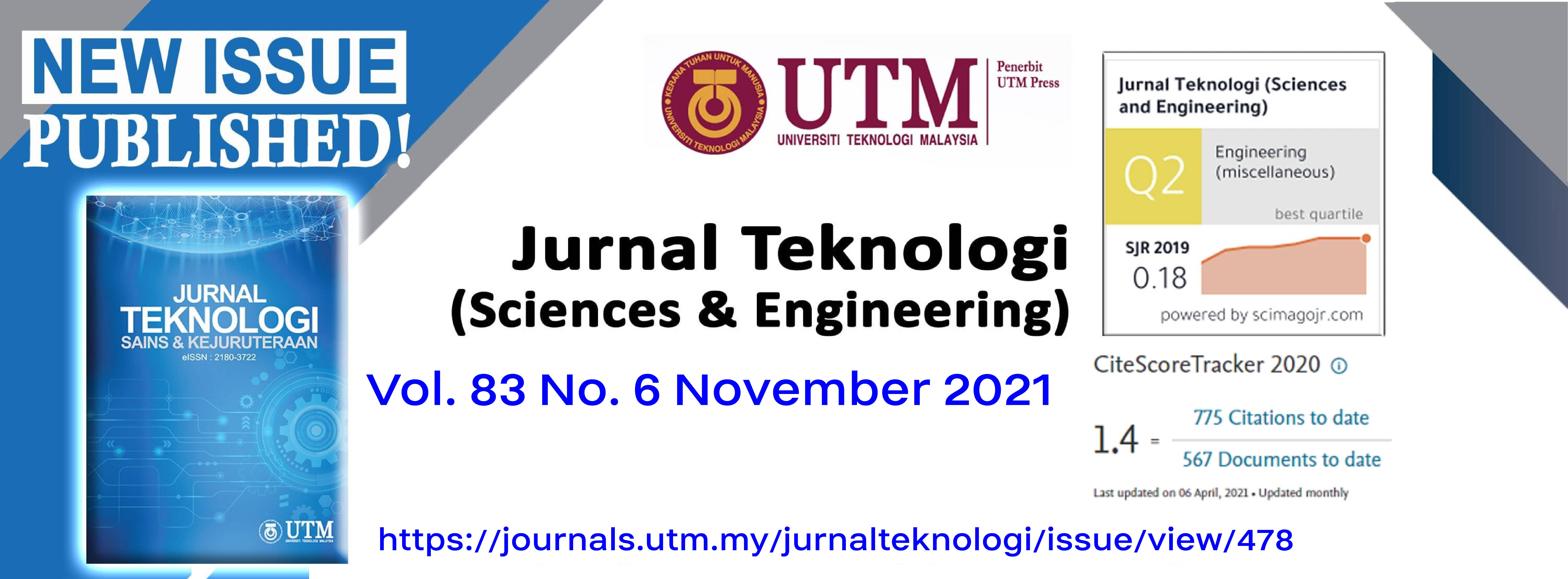CURRENT DEVELOPMENT OF SORBENTS DERIVED FROM PLANT AND ANIMAL WASTE AS GREEN SOLUTION FOR TREATING POLLUTED AQUEOUS MEDIA
DOI:
https://doi.org/10.11113/jurnalteknologi.v83.17242Keywords:
Adsorption, sorbent, plant waste, animal waste, pollutantsAbstract
In this review article, the recent development of organic sorbents derived from plant and animal waste for treating polluted aqueous media is presented. The application of biomass has been recognized reliable to adsorb hazardous pollutants contained in wastewater generated by emerging industries. This paper also discusses other existing technologies for removing pollutants including heavy metals, dyes, oil and grease, antibiotic and phenolic compounds from polluted aqueous media. Furthermore, several prominent examples of plant and animal wastes such as eucalyptus bark, pine bark, rice husk, various fruit peels, and animal bones are also properly reviewed. The effects of modification techniques on sorbent performance such as carbonization, pyrolysis, and chemical impregnation using acid or alkaline chemicals are considerably included. Some gaps in current literature are also discussed including the tendency of certain targeted pollutants, the use of simulated aqueous media, the scale of research projects, and the prominent modification procedures. Eventually, based on the relevant literature, clear conclusion has been drawn that these natural disposals have great potentiality as environmentally friendly sorbent alternative to other commercial expensive sorbents, and their reuse has been part of green solutions supporting a circular economy system.
Downloads
Published
Issue
Section
License
Copyright of articles that appear in Jurnal Teknologi belongs exclusively to Penerbit Universiti Teknologi Malaysia (Penerbit UTM Press). This copyright covers the rights to reproduce the article, including reprints, electronic reproductions, or any other reproductions of similar nature.
















